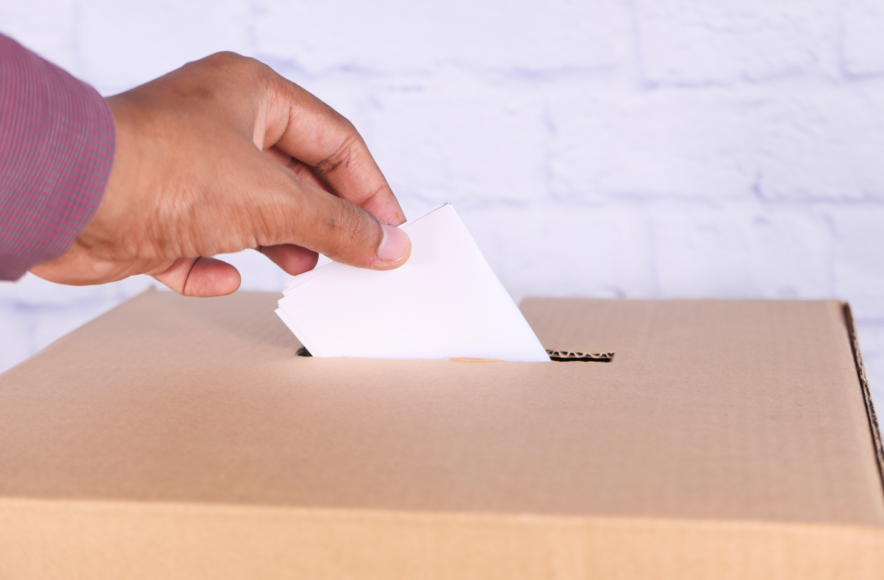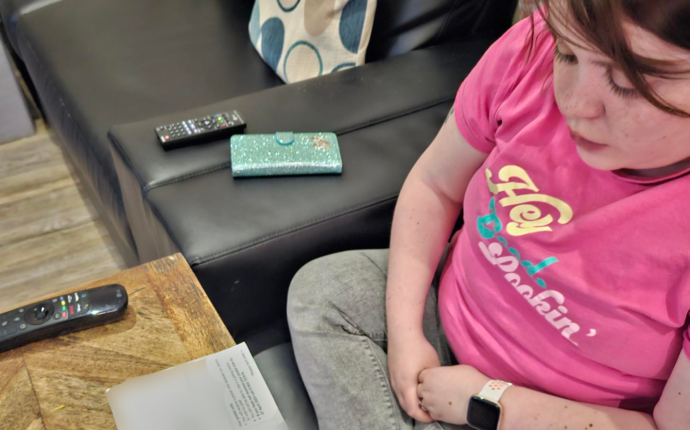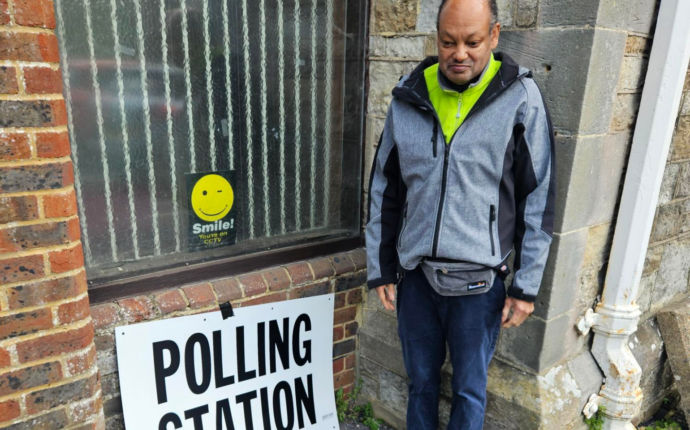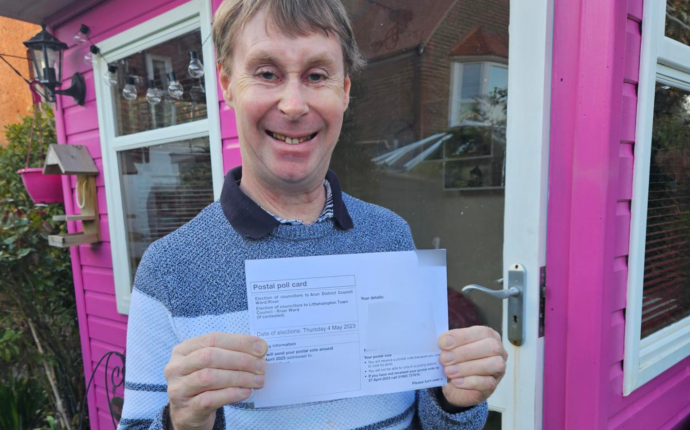From first-timers to regulars: three people we support share their views on voting

What’s your voting story? Do you love elections or loathe them? Have you always been interested in politics or do you not know where to start?
More than most, people with learning disabilities can face a bit of a lucky dip when it comes to election day. Research from Dimensions found that 80% felt polling stations weren’t accessible for people with a learning disability. On top of that, easy read manifestos are still all too rare.
With this in mind, we sat down with three United Response voters to understand their views on politics, elections, and the value of voting.
Debra: the first time voter wants politicians to talk to people before elections
Debra, 30, is a first-time voter, and she’s experienced some of these barriers for herself. Despite seeing information about elections on the news and television in the past, the 2023 local elections will be the first time she votes.
I haven’t voted before because I don’t understand it. Politicians use a lot of long words and sentences.
Her support worker Susana helped her to find easy read materials and accessible information about voting. Debra feels like this has helped make voting possible for her:
It’s important for me to have staff around to help me vote.
Now Debra is passionate about voting and she sees voting as a chance to get your voice heard. To inspire more people to vote, Debra thinks politicians need to get out and meet people.
It’s important to vote, because you get to say what you want to say.
I want politicians to tell the truth – tell us why they’re there. They should go around the country and talk to people before elections.

Winston: voting is the way to bring about change
Winston is very interested in politics and has voted in elections before. For him, the decision to vote was instinctive. He didn’t need to think about it, he just knew it was something he wanted to do.
For Winston it isn’t difficult to decide who to vote for. He reads the paper and has an excellent understanding of what the parties stand for.
Susana explained:
Winston has a very clear mind and knows what he wants.
Winston believes that voting can be very important, and he sees it as a way to bring about change. However, he also understands that some people may choose not to get involved in voting, and they shouldn’t be pressured.
If people don’t want to vote, then that’s up to them.

John: the long-term voter
John has voted eight times. Like Winston, he thinks voting is one of the ways we can make change, and voting matters a lot to him.
It is important to me to vote because I want the government to be doing well in this world
John gets support in the run up to elections. Susana shows him all of the Easy Read guides provided by United Response and My Vote My Voice, and during the general election, they will also go through what each party stands for.
John explained:
I get support choosing how to vote, but it is my own decision.

We all have a different relationship with politics and voting. But we all deserve the chance to use our voice.
Visit the My Vote My Voice website today for accessible voting materials and political information.
- Ali Mills is Communications and Engagement Officer for United Response